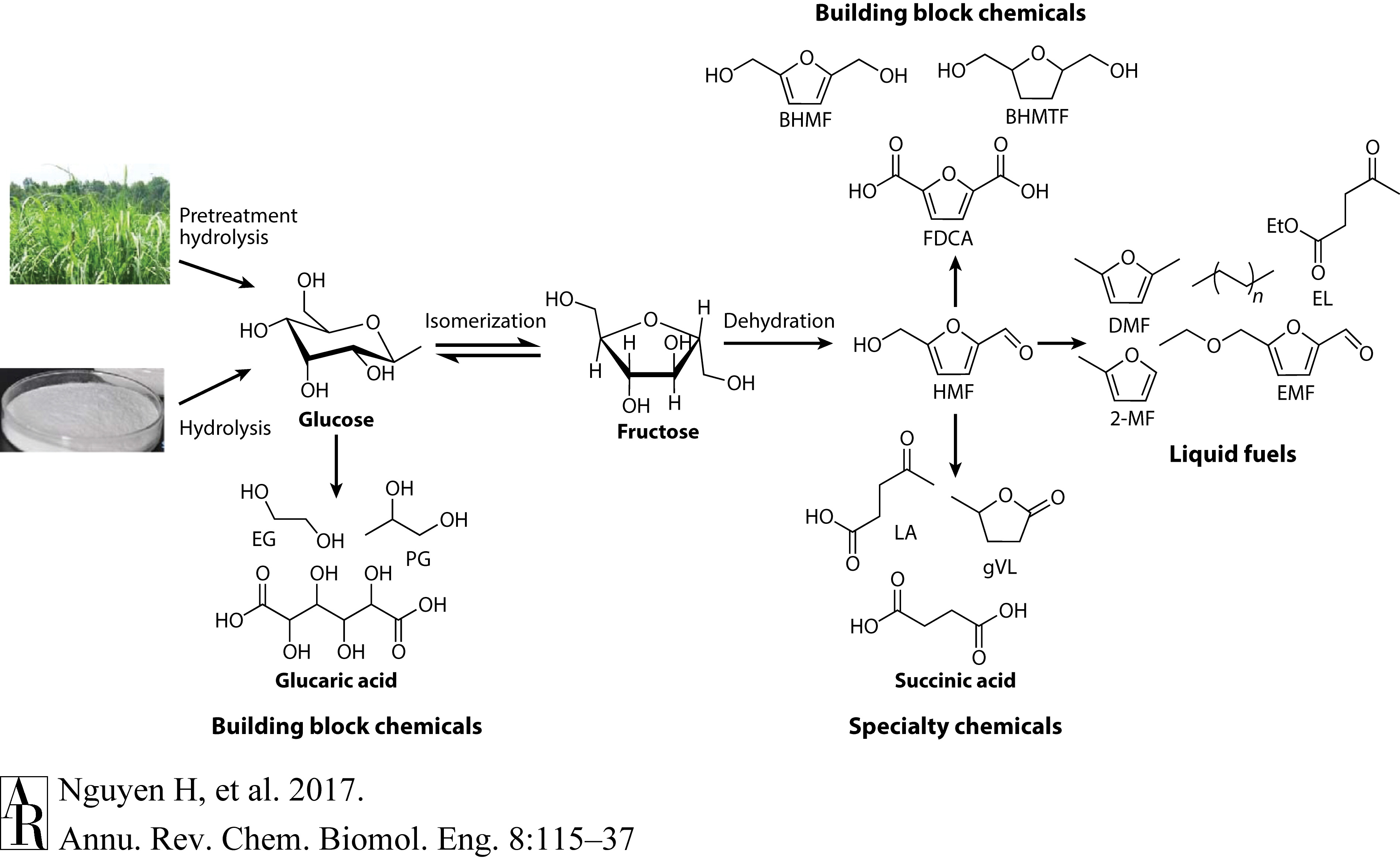Annu. Rev. Chem. Biomol. 8, 115-137 (2017)
With technological advancement of thermocatalytic processes for valorizing renewable biomass carbon, development of effective separation technologies for selective recovery of bioproducts from complex reaction media and their purification becomes essential. The high thermal sensitivity of biomass intermediates and their low volatility and high reactivity, along with the use of dilute solutions, make the bioproducts separations energy intensive and expensive. Novel separation techniques, including solvent extraction in biphasic systems and reactive adsorption using zeolite and carbon sorbents, membranes, and chromatography, have been developed. In parallel with experimental efforts, multiscale simulations have been reported for predicting solvent selection and adsorption separation. We discuss various separations that are potentially valuable to future biorefineries and the factors controlling separation performance. Particular emphasis is given to current gaps and opportunities for future development.
